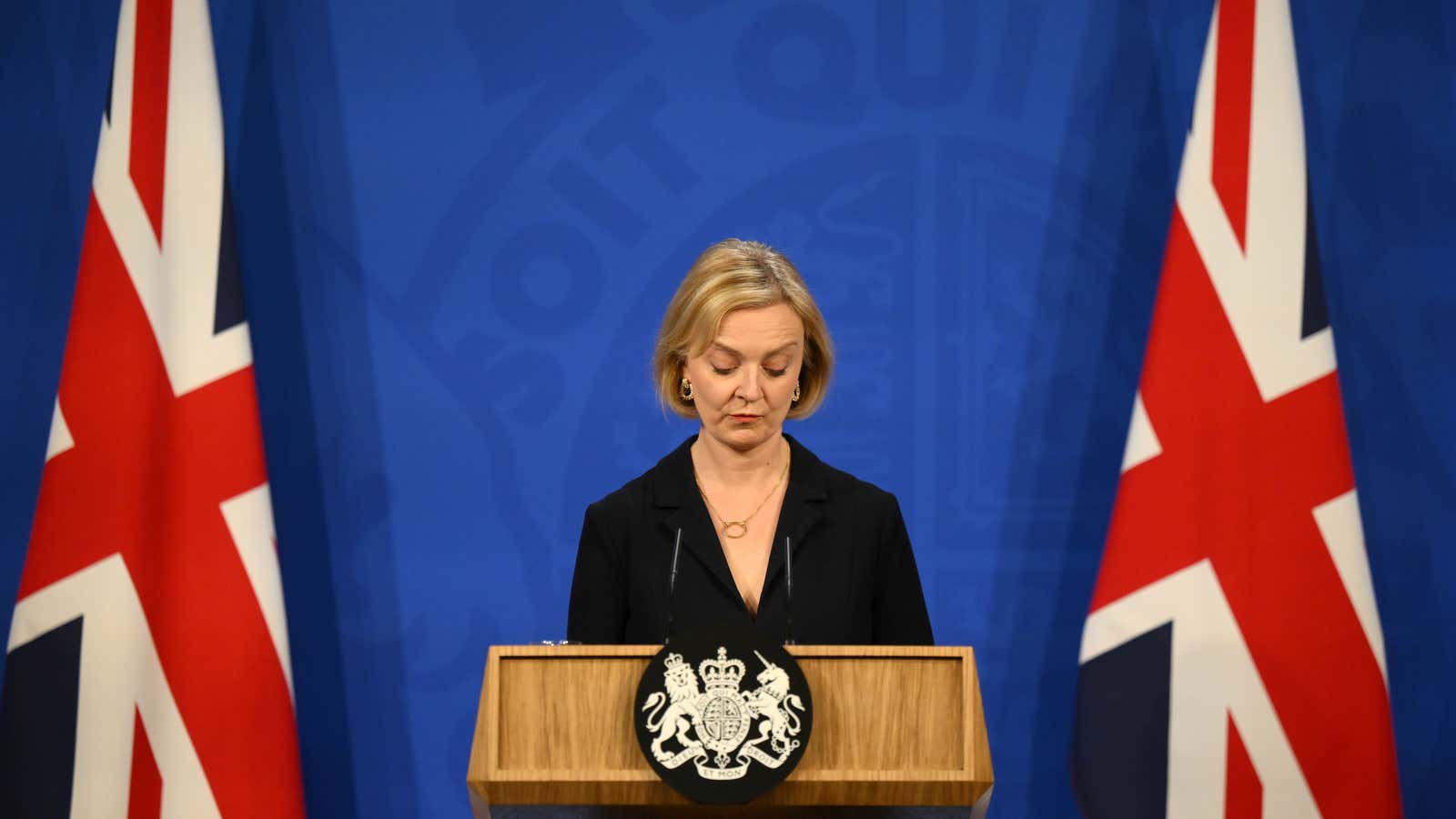The UK government’s plans for growth driven by tax cuts lasted just three weeks. In an extraordinary U-turn, new chancellor Jeremy Hunt today announced that he and prime minister Liz Truss would scrap most of the “mini budget” of Sept. 23 in an attempt to appease financial markets. In some cases, the measures announced today even roll back tax cuts planned by former chancellor Rishi Sunak during the previous Boris Johnson government.
“Firstly, we will reverse almost all the tax measures announced in the growth plan three weeks ago,” which have not started yet, Jeremy Hunt, who became chancellor on Friday, said in a video statement. The most important objective was to provide “certainty about the sustainability of public finances,” he said.
Last week the government said it would not cut corporation tax, as announced on Sept. 23, and would not cut taxes on the highest-paid members of society. But the reversals didn’t go far enough to reassure markets, leading to today’s more comprehensive change of course.
New policy reversals target energy and income tax
The government planned to cut the basic rate of income tax, currently 20%, by one percentage point in April 2023. Jeremy Hunt announced today that not only would that tax cut now not happen, but the rate would remain the same for the foreseeable future, “until economic circumstances allow for it to be cut.” Sunak, the other frontrunner alongside Truss in the recent contest to run both the Conservative Party and the country, had planned to cut it in 2024.
In yet another massive policy change, Hunt said that the plan to support bill payers with rising energy costs, a huge flagship policy, would go ahead but would only cover the next six months, as opposed to the two years previously planned. After that, he said, the Treasury would review the policy and try work out how to deliver something less expensive.
The reversal, dubbed by BBC economics editor Faisal Islam “perhaps... the biggest U-turn in British economic history,” is deeply embarrassing for Truss. For three weeks, while the pound fell to its lowest level against the dollar in history, the Bank of England stepped in to prop up the economy, and the IMF explicitly critiqued her unfunded tax cuts, Truss has insisted she won’t change course.
On Friday she fired her former chancellor, Kwasi Kwarteng, and began to unpick the policies in their budget proposal. Today, all the plans are in tatters. Speculation about how long Truss will remain in office is growing louder.
